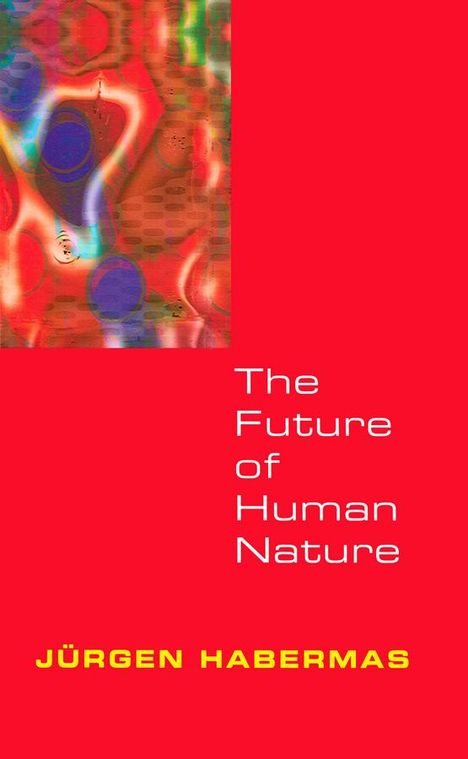Jürgen Habermas: The Future of Human Nature, Kartoniert / Broschiert
The Future of Human Nature
- Verlag:
- Polity Press, 04/2003
- Einband:
- Kartoniert / Broschiert
- Sprache:
- Englisch
- ISBN-13:
- 9780745629872
- Artikelnummer:
- 12178751
- Umfang:
- 136 Seiten
- Gewicht:
- 225 g
- Maße:
- 216 x 139 mm
- Stärke:
- 14 mm
- Erscheinungstermin:
- 18.4.2003
- Hinweis
-
Achtung: Artikel ist nicht in deutscher Sprache!
Klappentext
Recent developments in biotechnology and genetic research are raising complex ethical questions concerning the legitimate scope and limits of genetic intervention. As we begin to contemplate the possibility of intervening in the human genome to prevent diseases, we cannot help but feel that the human species might soon be able to take its biological evolution in its own hands. 'Playing God' is the metaphor commonly used for this self-transformation of the species, which, it seems, might soon be within our grasp.
In this important new book, Jürgen Habermas - the most influential philosopher and social thinker in Germany today - takes up the question of genetic engineering and its ethical implications and subjects it to careful philosophical scrutiny. His analysis is guided by the view that genetic manipulation is bound up with the identity and self-understanding of the species. We cannot rule out the possibility that knowledge of one's own hereditary factors may prove to be restrictive for the choice of an individual's way of life and may undermine the symmetrical relations between free and equal human beings.
In the concluding chapter - which was delivered as a lecture on receiving the Peace Prize of the German Book Trade for 2001 - Habermas broadens the discussion to examine the tension between science and religion in the modern world, a tension which exploded, with such tragic violence, on September 11th.
Biografie
Der 1929 in Düsseldorf geborene deutsche Philosoph und Soziologe Jürgen Habermas studierte Philosophie, Geschichte und Psychologie in Göttingen, Zürich und Bonn, wo er 1954 promovierte. Von 1956 bis 1959 war er Assistent am Institut für Sozialforschung in Frankfurt am Main. und nahm dort wesentliche Impulse der Frankfurter Schule auf. Aus ihrer Tradition hat er die seine weiteren Arbeiten strukturierende Fragestellung entwickelt, wie eine kritische Theorie der Gesellschaft beschaffen zu sein habe, die eine dem erreichten Stand sozialwissenschaftlicher Erkenntnis wie historischer Erfahrung angemessene Theorie der Demokratie darstelle. 1961 habilitierte er in Marburg und wurde auf ein Extraordinariat für Sozialphilosophie nach Heidelberg berufen. 1964 erhielt er eine Professur für Philosophie und Soziologie in Frankfurt am Main. 1971 wurde er, gemeinsam mit Carl-Friedrich von Weizsäcker, Direktor des neu gegründeten "Max-Planck-Instituts zur Erforschung der Lebensbedingungen der wissenschaftlich-technischen Welt" in Starnberg. 1982 folgte Habermas dem Ruf nach Frankfurt am Main auf eine Professur für Soziologie und Philosophie. 2001 wurde er mit dem Friedenspreis des Deutschen Buchhandels ausgezeichnet.

